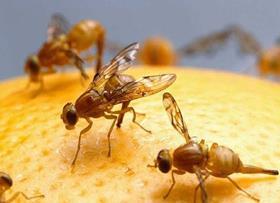
Taiwan has put a blanket ban on fruit imports from Tasmania.
The move comes in response to a confirmed detection of adult fruit flies on Flinders Island (an island within the state’s jurisdiction) and the discovery of fruit fly larvae in Spreyton in the northwest of the Tasmanian mainland.
Tasmania’s primary industries minister, Jeremy Rockliff, confirmed Taiwan had closed its borders, with the government and industry groups now working frantically to preserve access to other markets.
“I've been advised Taiwan has ceased imports for Tasmanian produce,' Rockliff told ABC News.
'We're keeping in close contact with our protocol countries, particularly Taiwan and China.”
Taiwan and China have developed into lucrative markets for Tasmanian cherry exporters, based on their ability to supply premium product at the height of Chinese New Year celebrations.
Until recently, Tasmania was the only Australian state with a preferential market access agreement in place with China for cherries, which paves the way for direct airfreight programmes. This deal was struck on the basis of Tasmania being recognised as a pest free area (PFA).
The PFA status was also instrumental in securing access to other lucrative markets such as Japan and South Korea.
While it’s not yet known if other markets will follow Taiwan’s decision, Darryl Barbour, national manager of Australia's Fruit Fly Council, told ABC News that there could be wide-spread implications for the state’s fruit industry if more access cuts are made.
'By being fruit-fly free, that means there's preferential access to a number of markets, including domestic and international,' Barbour said.
'There are very serious impacts. That state freedom can save costs of $2 to $4 per carton of fruit exported or more, so it's a massive market advantage.'



